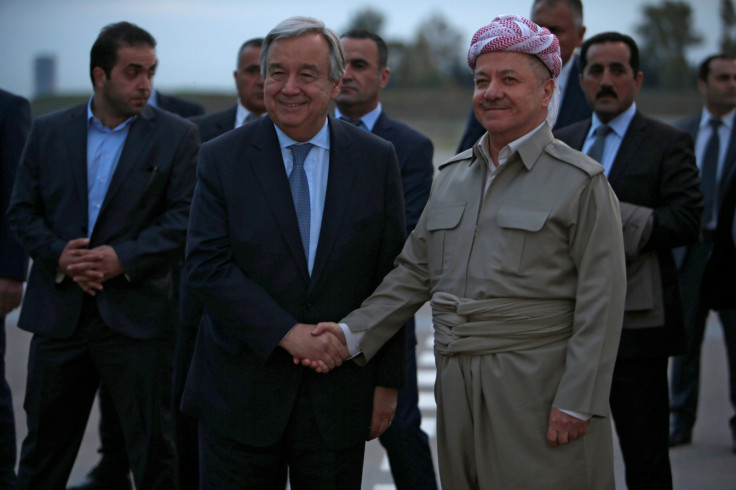Iraqi Kurds push forward with plans for independence referendum in 2017
Kurds have unsuccessfully sought statehood since the fall of the Ottoman Empire.

Kurdish officials have pressed forward with their proposals to hold a referendum on independence from Iraq in 2017.
Politicians from the two main parties of the Kurdistan Regional Government (KRG) – the Kurdistan Democratic Party (KDP) and the Patriotic Union of Kurdistan (PUK) – held a high-level meeting on Sunday (2 April) to discuss the initiative and launch an independence taskforce.
In a joint statement released after the meeting, the KDP and the PUK declared that sovereignty and self-determination is the "natural right of the nation of Kurdistan to decide on its political and administrative path in a referendum and an entity of an independent state".
"The two sides, through a joint high committee, [are tasked to] discuss this issue with the political and national parties of Kurdistan to form a joint committee in order to set the timing and mechanism to hold a referendum," the statement continued, as reported by Kurdish news agency Rudaw.
Further to the aspirations of independence, Kurdish President Masoud Barzani met with United Nations Secretary-General Antonio Guterres in Erbil on Saturday to discuss the referendum.
According to Iraqi media, a Kurdish official present at the meeting said Guterres was supportive of the initiative and that the UN and the US would back its legitimacy. A UN press release after the meeting made no mention of Kurdish independence but confirmed that Guterres said "international solidarity is vital" to improving the lives of Kurdish communities.
Though Kurdish nationalism has been a political ambition since the late 19th century, Kurds have yet been unsuccessful in establish their own state.
Following the fall of the Ottoman Empire and the end of World War One, Kurds were split among Iraq, Turkey and Syria and were made a minority in each country.
Iraqi Kurds pursued greater autonomy since the 1970s, but were faced with severe oppression and genocide by Saddam Hussein's Baath Party.
It was not until the 2003 US invasion of Iraq that Iraqi Kurdistan became an autonomous region and the KRG has slowly sought to strengthen its foothold in having its own internationally recognised state.
© Copyright IBTimes 2024. All rights reserved.







